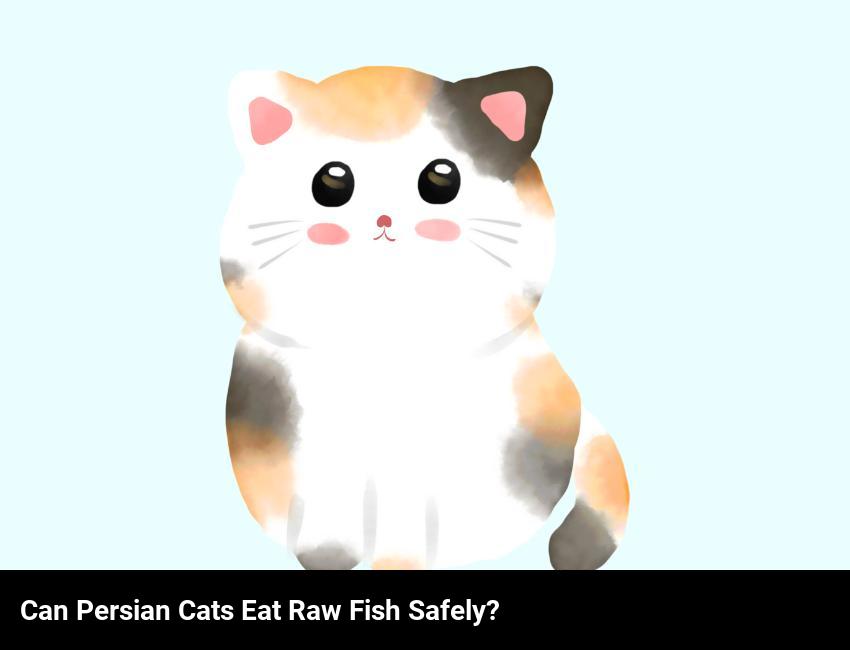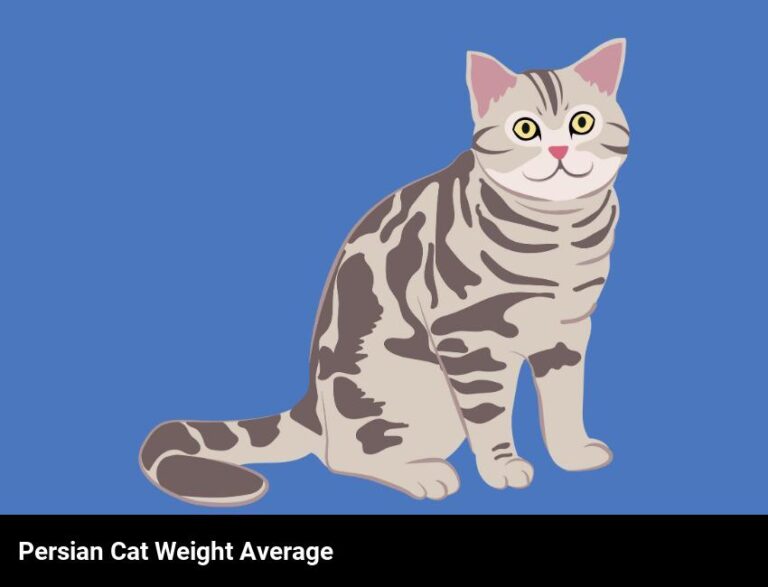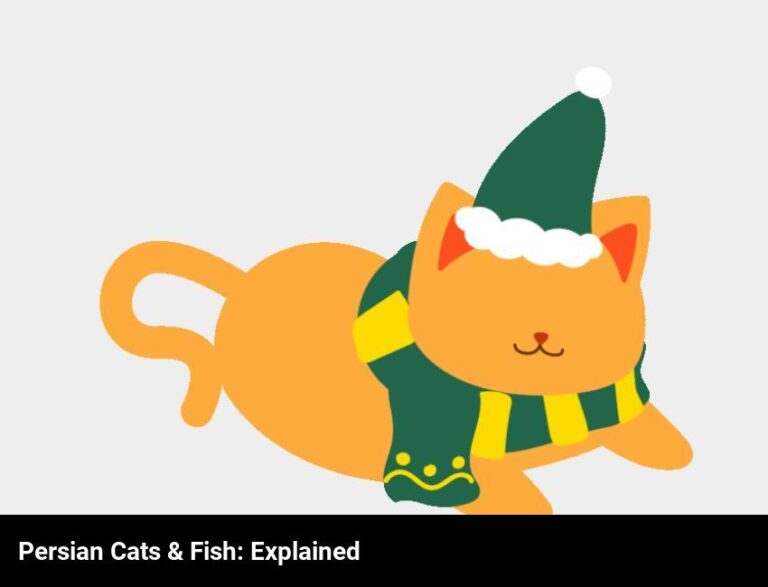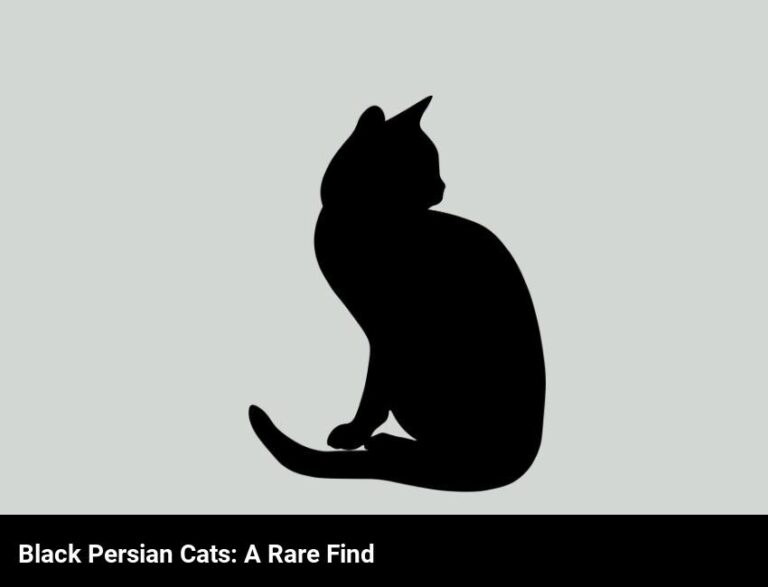Can Persian Cats Safely Eat Raw Fish?
Yes, Persian cats can safely eat raw fish. Raw fish can provide cats with essential vitamins and minerals that they need as part of a balanced diet. However, make sure the fish is fresh and prepared properly to reduce the risk of parasites and bacteria.
As a Persian cat owner, I’m sure you’ve heard the debate about whether raw fish is safe for cats to eat. It’s a tricky subject, and there’s a lot of conflicting advice out there. I know I’ve been curious about it myself and wondered if it was something that would be beneficial to my Persian cat.
In this blog, I’ll be exploring the safety of raw fish for Persian cats, and answering all the important questions you might have about the topic. We’ll take a look at what kind of raw fish is safe, any health concerns to be aware of, how to tell if your cat is allergic, some of the benefits of feeding raw fish, and some tips for introducing it safely.
By the end of this blog, you’ll have all the information you need to decide if raw fish is a good fit for your Persian cat, and how to feed it safely.
What kind of raw fish are we talking about?
When we talk about raw fish for Persian cats, we’re talking about fish that is fresh, never frozen, never cooked, and not smoked. We’re also talking about fish that is safe to eat, meaning it has been inspected and tested to make sure it’s free of toxins and other contaminants.
This means that the fish must come from reputable sources, like local fishmongers, and not from random sources that may not be properly regulated. The type of fish that is safe to eat includes salmon, trout, and other non-oily fish. It’s also important to know that some species of fish may have toxins in their flesh, so it’s best to stick to the types of fish mentioned above.
When introducing raw fish to your Persian cat, it’s important to start slow. Feeding your cat too much raw fish can lead to digestive issues, so start with small amounts and gradually increase the amount over time.
Lastly, be sure to properly prepare the raw fish before feeding it to your Persian cat. The fish must be thoroughly cleaned, and all of the bones must be removed. It’s also important to avoid feeding raw fish that has been sitting out for too long, as it can cause food poisoning.
By following these guidelines and using freshest, safest fish possible, you can safely feed raw fish to your Persian cat.
What are the benefits of persian cats eating raw fish?
Yes! Persian cats can safely and healthily eat raw fish. Here are some of the benefits that raw fish can offer to your Persian feline friend:
- Improved Digestion: The natural enzymes in raw fish help break down proteins, carbohydrates and fats, making the nutrients more easily absorbed. This can help improve digestion and nutrient absorption, leading to a healthier, happier cat.
- Healthier Skin and Coat: The Omega-3 fatty acids in raw fish are essential for maintaining a glossy, healthy coat and skin. They also help reduce inflammation and keep joints supple and flexible.
- Enhanced Brain Function: The Omega-3 fatty acids in raw fish help to improve brain function and strengthen the nervous system. This can help your Persian cat think more quickly, be more responsive and alert, and lead a healthier, happier life.
- Improved Immune System: Eating raw fish can help boost your Persian cat’s immunity by providing essential vitamins, minerals and antioxidants. This can help keep your cat healthy and protected from illness and disease.
- Weight Management: The high levels of protein in raw fish can help your Persian cat maintain a healthy weight and muscle mass. This can help reduce the risk of obesity and other weight-related health problems.
In short, raw fish can be a healthy and beneficial addition to your Persian cat’s diet. Be sure to feed your cat only fresh, high-quality fish, and always consult your vet before making any changes to your cat’s diet.
What are some tips for introducing persian cats to raw fish safely?
Yes, Persian cats can safely eat raw fish! Introducing them to raw fish can be a great way to provide them with a healthy source of nutrition. Here are some tips to make sure they enjoy it safely:
- Use only fresh, high-quality fish. Make sure the fish you buy is from a reliable source and is not frozen or otherwise processed.
- Before serving the fish to your cat, make sure it has been defrosted and thoroughly rinsed.
- Start with small pieces of fish and gradually increase the size over time as your cat gets used to it.
- Make sure to clean your cat’s feeding bowl or plate thoroughly after each feeding.
- It is important to monitor your cat’s reactions to the raw fish. If your cat shows any signs of distress, discontinue feeding the fish.
- Speak to your veterinarian if you have any concerns about introducing raw fish to your cat’s diet.
Are there any health concerns associated with persian cats eating raw fish?
Yes, there are some health concerns associated with Persian cats eating raw fish. While raw fish can provide essential nutrients and has some health benefits, it is also possible for Persian cats to get parasites, bacteria, or toxins if they eat raw fish.
In particular, Persian cats are susceptible to Anisakiasis, which is an infection from worms. These worms can be found in raw fish, and if your Persian cat eats raw fish, they may be at risk for contracting this infection.
Additionally, your Persian cat could be at risk for food poisoning if they eat raw fish. Raw fish can contain bacteria like salmonella that can cause food poisoning if ingested.
Finally, there is a risk of heavy metal poisoning if your Persian cat eats raw fish that has been exposed to contaminated water. Contaminated water can contain high levels of toxins, such as mercury and lead, which can be dangerous if ingested.
Therefore, while it is possible for Persian cats to eat raw fish, there are some health concerns that you should be aware of. It is important to ensure that any raw fish given to your Persian cat is safe and free from parasites, bacteria, and toxins.
How can you tell if a persian cat is allergic to raw fish?
Well, the only way to know if your Persian cat is allergic to raw fish is to observe it closely. If your kitty has any symptoms such as itchy skin, sneezing, watery eyes, frequent runny nose, vomiting, or diarrhea, it may be allergic to raw fish. Additionally, if your cat is licking or scratching excessively, it may be an indication of an allergy.
Another way to tell if your kitty is allergic to raw fish is to watch for changes in its behavior. If your cat is displaying signs of lethargy or it’s not as playful as usual, it could be due to an allergy to raw fish. Additionally, if your cat is avoiding food or not eating as much as usual, it could be symptoms of an allergy.
Finally, if your cat shows any signs of a rash or hives, it is a sure sign of an allergy to raw fish. If you notice any of these symptoms in your cat, it is important to take your pet to the veterinarian immediately to get a proper diagnosis and treatment.
What are some raw fish recipes that are safe for persian cats to eat?
Yes, Persian cats can safely eat raw fish if it is prepared correctly! Raw fish can be a great source of nutrition for your feline friend, but it is important to understand the risks and safety measures. Here are some recipes you can try that are safe for Persian cats to eat:
- Salmon Tartar: Start with fresh, boneless, skinless salmon and cut it into cubes. Mix in some diced onion and a few tablespoons of olive oil for flavor. Top the salmon with chopped parsley and serve chilled.
- Tuna Pâté: Start with canned tuna, mixed with a bit of olive oil and diced onion. Mix it into a paste and serve it chilled.
- Trout Sushi: Start with raw, boneless trout and cut it into thin slices. Place the slices of trout on a plate and top them with diced avocado and a sprinkle of sesame seeds.
These recipes are safe for Persian cats to eat and are a delicious way to give your cat a nutritious meal. Just be sure to take the proper safety measures when handling and preparing raw fish.

Frequently Asked Questions
What are the benefits of persian cats eating raw fish?
Eating raw fish can offer a number of health benefits for Persian cats. The omega-3 fatty acids found in raw fish can improve coat health, reduce inflammation, and boost their immune system. Raw fish is also a good source of protein and can help Persian cats maintain muscle tone. Additionally, raw fish can help promote weight control and improve digestive health.
What kind of raw fish is safe for persian cats to eat?
It is generally safe for Persian cats to eat raw fish such as salmon, trout, cod, and herring. However, it is important to note that not all raw fish are safe for cats to consume. Tuna, mackerel, and swordfish should be avoided as they contain high levels of mercury, which can be harmful to cats. Additionally, raw fish should be fresh, as spoiled fish may contain bacteria that could make your cat ill.
What are the signs of an unhealthy fish that should be avoided?
Signs of an unhealthy fish that should be avoided include a strong fishy smell, discoloration, and a slimy texture. You should also check for any visible signs of parasites, such as small white dots or streaks, or fuzzy growths. If the fish looks or smells off, it is not safe to feed to your Persian cat.
What are the health risks associated with persian cats eating raw fish?
Eating raw fish carries a number of health risks for Persian cats. These include bacterial infections, parasites, and other food-borne illnesses. Additionally, raw fish may contain high levels of mercury, which can be toxic if consumed in large quantities. To reduce the risk of these illnesses, it is recommended that Persian cats only eat cooked fish.







